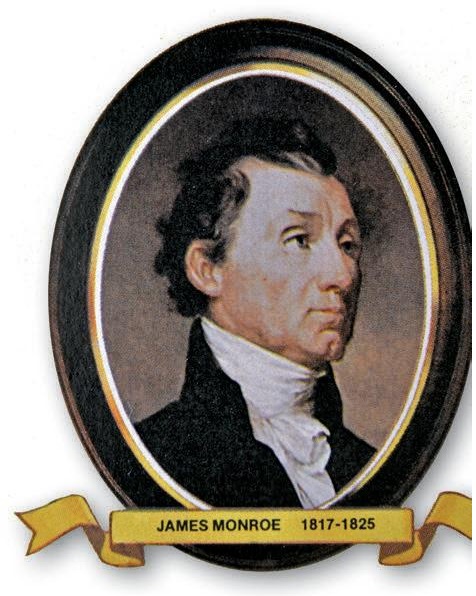
Over the decades, other U.S. presidents have used variations of it to warn foreign nations against interfering in the politics of the Western Hemisphere. Some presidents have used it to insert the United States in the affairs of its neighbors.
For Monroe, threats from Europe inspired him to take this step. In 1821, several Spanish colonies in the Americas had declared their independence. The United States recognized those places as new countries. In Europe, however, the Holy Alliance urged Spain to reclaim its empire in the New World.
The United States was determined to prevent European nations from threatening the new republics in its "sphere of influence." Monroe introduced the Monroe Doctrine in his seventh annual address to Congress on December 2, 1823. He told Congress "We should consider any attempt on [the part of the European nations] to extend their system to any portion of this hemisphere as dangerous to our peace and safety."
The doctrine stated that the United States would not interfere in the affairs of Europe or its colonies. It also insisted that North and South America were not subjects for future colonization by European powers. The doctrine made clear that interference by a European power in a Western country that had declared its independence would be considered a threat to the United States.
It was a bold statement. In the 1820s, the young United States did not have the military or political might to back up its new policy. Yet the Monroe Doctrine governed the foreign policy of the United States for many years.
This story is from the {{IssueName}} edition of {{MagazineName}}.
Start your 7-day Magzter GOLD free trial to access thousands of curated premium stories, and 9,000+ magazines and newspapers.
Already a subscriber ? Sign In
This story is from the {{IssueName}} edition of {{MagazineName}}.
Start your 7-day Magzter GOLD free trial to access thousands of curated premium stories, and 9,000+ magazines and newspapers.
Already a subscriber? Sign In

Putting the Pieces Together
Americans needed to begin to put the past behind them, come together, and plan for the future in the spring of 1865. But Abraham Lincoln, the man best equipped to lead them and who had hoped to restore the country as smoothly and peacefully as possible, had been assassinated.

LAST SHOTS
The last Confederate forces in the Civil War didn’t surrender in the spring of 1865 or on a battlefield.
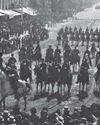
AND IN OTHER 1865 NEWS
A group of African Americans stop at the White House’s annual public reception on January 1, where they shake hands with President Abraham Lincoln.
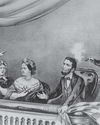
A Plot to Kill President the
For several months, actor John Wilkes Booth’s band of conspirators had plotted to capture President Abraham Lincoln and hold him hostage in exchange for Confederate prisoners.
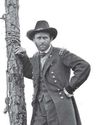
Let the Thing Be Pressed
In June 1864, Union Lieutenant General Ulysses S. Grant began a nearly 10-month campaign in Virginia.
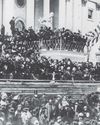
HEALING THE NATION
President Abraham Lincoln took the oath of office for the second time on March 4, 1865.

A Helping Hand
The spring season is hard in any agricultural society. Plants and animals are too small to eat.
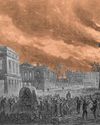
WAR SHERMAN-STYLE
As far as Union Major General William T. Sherman was concerned, the Civil War had gone on long enough.

PEACE TALKS
The fall of Fort Fisher made clear that the Confederacy’s days were numbered. Southerners were tired and hungry.

FORT FISHER'S FALL
Outnumbered Confederate soldiers inside Fort Fisher were unable to withstand the approach of Union troops by land and the constant Union naval bombardment from the sea.